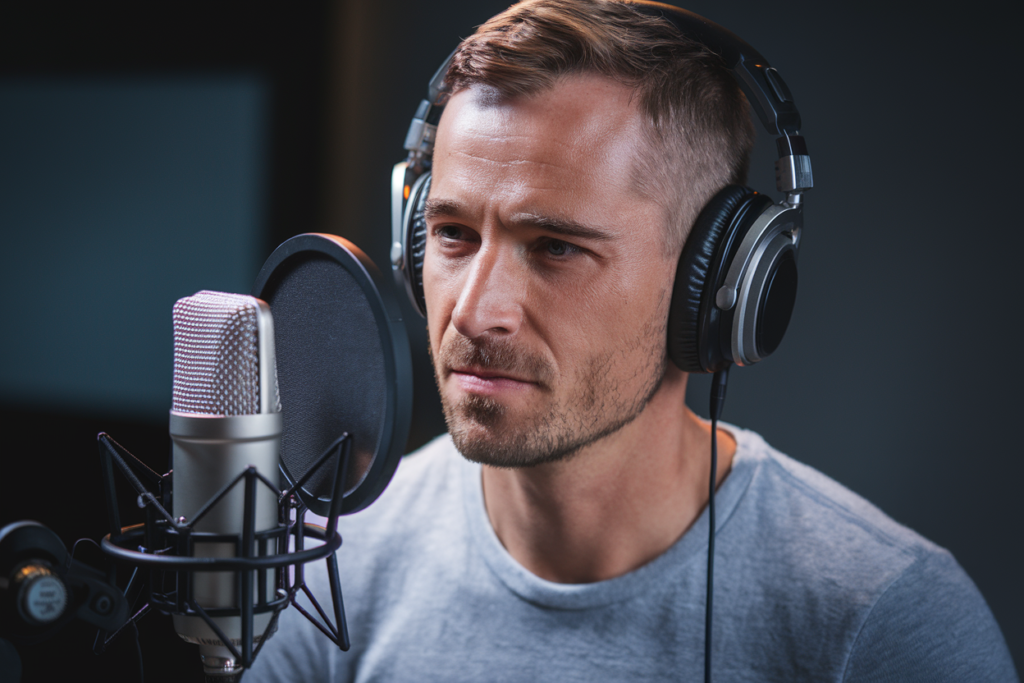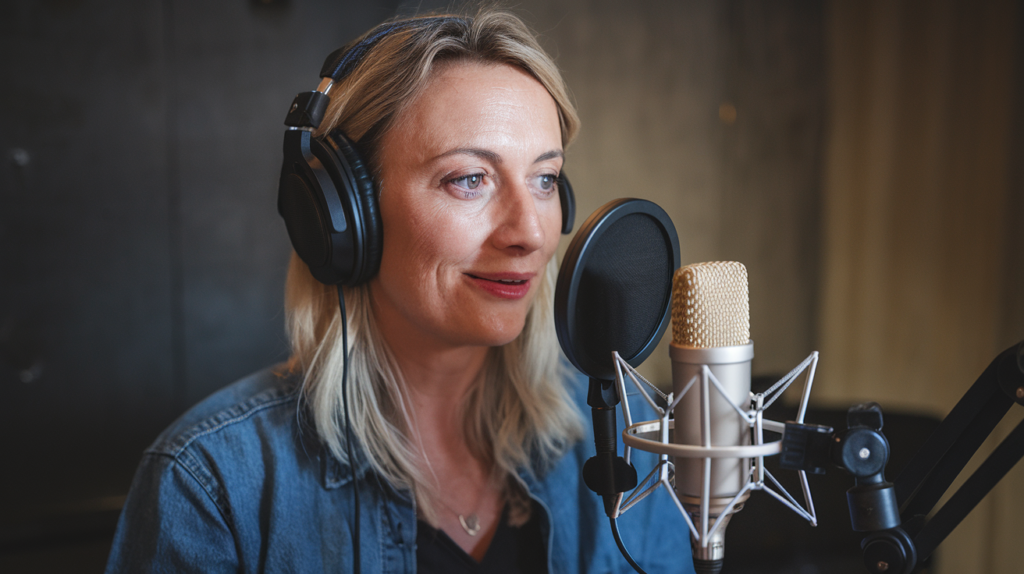Key Takeaways
- Diverse Accents: French accents vary significantly across regions, each offering unique sounds and characteristics that reflect local culture and history.
- Parisian Accent: Known for its clarity and neutrality, the Parisian accent is often seen as the standard in media, making it ideal for voiceovers targeting broad audiences.
- Regional Influences: Southern accents feature vowel elongation and warmth, while Northern accents possess sharper consonants, adding distinctiveness to regional speech patterns.
- Cultural Connections: Accents embody local pride and cultural identity, enhancing appreciation for the traditions and heritage of different French-speaking communities.
- Impact on Communication: Understanding various French accents improves communication effectiveness by shaping tone and clarity in both casual conversations and professional projects.
- Voiceover Considerations: Selecting voice talent who can master regional nuances enhances storytelling authenticity, ensuring content resonates deeply with diverse audiences.
Ever wondered why French sounds so different depending on where you are in France? The beauty of the French language lies not just in its melodic flow but also in its rich tapestry of accents. Each region brings a unique flavor, reflecting local culture and history.
Overview Of French Accents
French accents vary significantly across regions, each offering a unique flavor to the language. Understanding these distinctions can enhance your appreciation of French culture and its rich history.
Regional Variations
- Parisian Accent: This accent stands out for its clarity and is often considered the standard in media and education. It’s characterized by nasal sounds and specific intonations that give it a melodic quality.
- Southern Accent: Found in areas like Provence, this accent features a more pronounced lilt. You’ll notice vowel elongation, which adds warmth and expressiveness to conversations.
- Northern Accent: In regions such as Nord-Pas-de-Calais, you’ll encounter sharper consonants and distinct pronunciation of certain vowels. This accent reflects the local identity through its unique speech patterns.
- Alsatian Accent: Influenced by German due to historical ties, this accent includes distinctive phonetic elements not found in standard French. The blend creates an interesting linguistic tapestry.
- Corsican Accent: On Corsica, you’ll hear an accent that incorporates Italian influences, making it quite different from mainland French accents. It’s softer with unique rhythmical patterns that set it apart.
Cultural Reflections
Accents aren’t just about sound; they embody local pride and cultural identity. Each region’s way of speaking tells stories of tradition and heritage, inviting you to explore deeper connections with local communities.
In addition to understanding these variations, many voiceover artists adapt their performances based on regional accents to resonate better with audiences or capture authentic local flavors in projects ranging from commercials to documentaries.
Major Accents In France
French accents vary significantly across regions, each adding unique charm to the language. Understanding these accents can enhance your appreciation of French culture and communication.
Parisian Accent
The Parisian accent stands out for its clarity and neutrality. Often considered the standard in media, it’s characterized by a precise pronunciation that many learners aim to emulate. You’ll notice that vowels are crisp, and consonants are often softened, creating a melodic flow. This accent is widely recognized globally, making it an excellent choice for voiceovers intended for broad audiences. Voice artists frequently adopt this accent to ensure their work resonates well with listeners.
Southern French Accents
Southern French accents bring warmth and character to the language. Regions like Provence exhibit vowel elongation, which adds a musical quality to speech. The Southern dialects often feature more open sounds and a distinct rhythm that conveys friendliness and hospitality. When it comes to voice talent in this region, you’ll find many artists embrace these unique traits in their performances—ideal for projects seeking an authentic local touch.
Northern French Accents
In contrast, Northern French accents possess sharper consonants and a distinctive cadence. The influence of neighboring languages can be heard here; speakers often articulate words with more emphasis on certain sounds compared to other regions. For those looking at voice actors from Northern France, expect dynamic deliveries that capture attention—perfect for storytelling or engaging narratives where energy is key.
Understanding these regional variations not only enriches your knowledge but also helps you select the right voiceover talent if you’re considering projects rooted in specific cultural contexts.
Influence Of Accents On Communication
Accents play a crucial role in communication, shaping how messages are perceived and understood. Each French accent carries unique characteristics that influence the tone and clarity of conversations. For example, the Parisian accent’s precise pronunciation often makes it easier for listeners to grasp the intended message, especially in formal settings. You might notice how this clarity can enhance your projects aimed at broader audiences.
On the other hand, regional accents like those from Provence or Northern France infuse warmth and personality into interactions. Voice talents often embrace these distinct tones to convey authenticity in their performances. Using an accent that’s true to a specific region can create an emotional connection with listeners, drawing them into your narrative more effectively.
In casual conversation, familiarity with various accents allows for richer exchanges. You may find that people resonate differently with Southern French melodies compared to sharper Northern sounds. This variation not only adds depth but also reflects cultural nuances that enrich communication.
When you’re selecting voice artists for projects, considering these accents becomes vital. A voiceover artist who masters regional nuances can elevate your content by making it relatable to its audience. Imagine how much more engaging a script becomes when delivered with the right local flavor!
Understanding these influences helps you appreciate how accents shape dialogue and storytelling in French culture while ensuring that your voiceover choices align perfectly with your project’s goals.
Cultural Significance Of Accents
Accents in French aren’t just about pronunciation; they carry deep cultural significance. Each regional accent tells a story, reflecting the identity and history of its speakers. For instance, the Parisian accent often symbolizes sophistication and modernity, making it a preferred choice for media and voiceover work aimed at broad audiences. Its clarity enhances communication, especially in formal contexts.
Conversely, accents from regions like Provence evoke warmth and musicality. These features add personality to interactions and can resonate deeply with listeners in voiceovers. When a voice artist embodies this Southern flair, it transforms their performance into something relatable and engaging.
Northern accents introduce sharper consonants that inject energy into narratives. This dynamic delivery captivates audiences, making them ideal for projects requiring lively storytelling. Voice actors skilled in these regional nuances connect more effectively with their audience by eliciting genuine emotions through their performances.
Understanding these variations enriches your appreciation for French culture. The ability to navigate different accents not only elevates dialogue but also enhances storytelling authenticity in various media formats. Selecting the right voice talent who can masterfully adapt to these unique sounds strengthens emotional connections with your audience, ensuring your content resonates on multiple levels.
By recognizing the cultural weight of each accent, you empower yourself to make informed choices when hiring voiceover professionals for projects that demand authenticity and relatability.
Conclusion
Exploring the rich tapestry of French accents reveals how they shape communication and reflect cultural identity. Each accent adds its own distinct flavor to the language making interactions more engaging and meaningful. Whether you’re captivated by the clarity of the Parisian accent or drawn to the warmth of Southern tones understanding these nuances enhances your appreciation for French culture.
When choosing voiceovers or engaging in conversations it’s crucial to recognize these regional differences. They not only elevate storytelling but also foster deeper connections with audiences. Embracing this diversity enriches your experience with the French language ensuring every interaction is authentic and resonant.
Frequently Asked Questions
What are the main French accents discussed in the article?
The article highlights several regional French accents, including the Parisian accent known for its clarity, the Southern accent from Provence characterized by warmth, the Northern accent with sharper consonants, the Alsatian accent influenced by German phonetics, and the Corsican accent that incorporates Italian elements.
Why are French accents important in communication?
French accents play a crucial role in how messages are perceived. Each accent carries unique characteristics that can enhance understanding or add personality to interactions. Familiarity with these accents enriches conversations and reflects cultural nuances.
How do regional accents affect voiceover performances?
Voiceover artists often adapt their performances to reflect regional accents. Mastering these variations enhances authenticity and emotional connection with audiences. For example, using a Southern or Northern accent can make projects feel more relatable and engaging.
What is unique about the Parisian accent?
The Parisian accent is recognized for its precise pronunciation and standardization in media. It is often emulated by language learners due to its clarity, making it a popular choice for voiceovers aimed at broad audiences.
How does culture influence French accents?
Accents reflect local pride and cultural identity, telling stories of tradition and heritage. The Parisian accent symbolizes sophistication while Southern accents evoke warmth and musicality. Understanding these cultural ties enriches appreciation for French language diversity.
Can familiarity with various French accents improve conversation skills?
Yes! Being familiar with different French accents not only improves comprehension but also enhances casual conversations. It allows speakers to navigate social interactions more effectively while showcasing an awareness of cultural nuances within the language.







